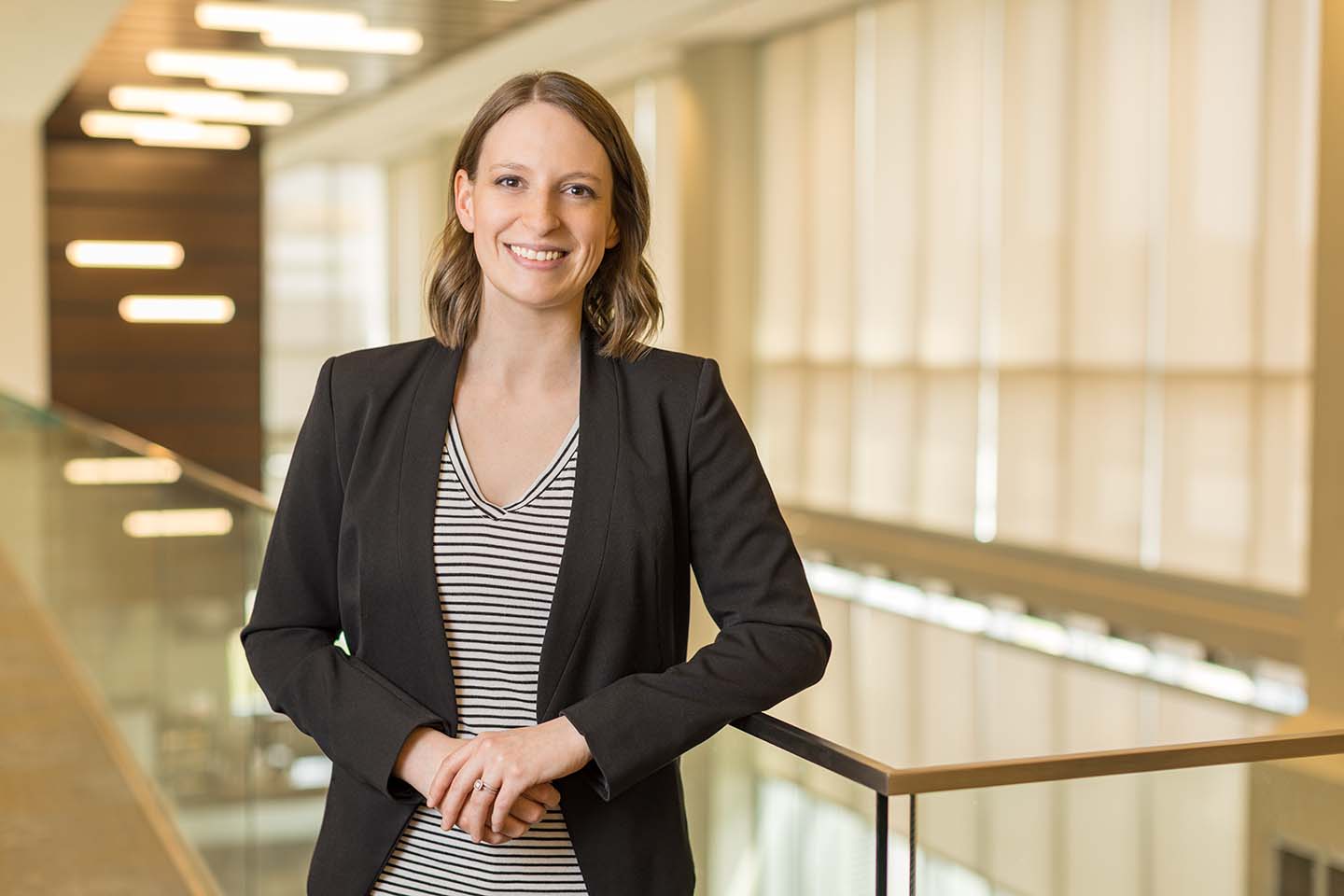2022 Preceptor of the Year Helped Students Adapt During COVID-19
Kelly Gassman, a PA Practicing in Psychiatry, Helps Students Tailor Their Clinical Rotation
May 18, 2022
By Sarah Blugis

As a preceptor, Kelly Gassman, MPAS, PA-C, the 2022 AAPA/PAEA Preceptor of the year, understands firsthand that every student has different needs.
“I had always felt that I didn’t fit the mold of a typical PA student, which made schooling a challenge,” Gassman says. “When I began my professional career, I knew I wanted to precept with the ultimate goal of creating a clerkship that would be adaptable for each individual student.”
The Preceptor of the Year Award, presented in partnership with PAEA, honors a preceptor who demonstrates exemplary service in the clinical education of PA students as a mentor, role model, and instructor; and furthers the image of PAs by exemplifying the PA profession’s philosophy of providing accessible, quality healthcare.
From a young age, Gassman remembers having an interest in healthcare that began, surprisingly, with liking the smell of medical offices. But in high school, she struggled in science classes – and so, shifted her focus to elementary education in college.
Medicine still called to her, though, and so she switched over to a pre-medicine track. As soon as Gassman learned about the PA profession, she knew it was the right fit.
“One thing that drew me to the PA profession instead of other disciplines was the desire not to feel pigeon-holed or trapped in my career,” she says. “Being able to hit the ground running as a new graduate, getting involved in precepting and subspecialty clinics, and helping to train new graduates has opened so many doors.”
After graduating from the University of Nebraska in 2018, Gassman began her career as a new graduate working in psychiatry at Nebraska Medicine in 2019. Because of this timing, much of her career so far has been shaped significantly by the COVID-19 pandemic.
“In the blink of an eye, the day-to-day clinic routine came to a halt as we transitioned to telehealth. Working in psychiatry, this was simpler to do than in other specialties, but was challenging nonetheless,” Gassman says.
The shift also posed challenges for her clinic’s teaching structure for PA and NP students, which Gassman had been precepting full time for several months. She had also helped to build a psychiatry clerkship at Nebraska Medicine from the ground up, creating a valuable, student-focused rotation that drew on her own personal experiences as a student.
Gassman never let the difficult circumstances of the pandemic slow her, or her students, down. Through those uncertain months, Gassman helped her students to adapt. She created a new system for information sharing using software like Microsoft Teams, to ensure that students and preceptors still felt connected. Students were able to hit the ground running on the first day, she says, despite being in a separate location from their preceptor.
So far, Gassman has mentored approximately 40 PA students throughout four-week rotations. For her, the most important aspect of her work as a preceptor is helping her students to tailor their experience.
“Psychiatric need is everywhere, so being able to take a unique specialty and make students comfortable approaching its topics in the future, particularly in rural areas, increases access,” Gassman says.
At Nebraska Medicine, Gassman works in an outpatient setting, practicing in the general clinic as well as in addiction psychiatry, and the treatment-resistant depression subspecialty clinic. Along with her clinical practice, Gassman has advocated for the growth of the APP team there, and has been a part of building an interprofessional education experience in collaboration with an addiction psychiatrist. Gassman also holds a volunteer adjunct faculty position with the University of Nebraska Center’s PA program, focusing on substance-related and addictive disorders.
PAs, Gassman says, are change-makers. “The passion amongst my peers is palpable, and the world should know that we are ready to continue making positive, lasting impacts,” she says.
Thank you for reading AAPA’s News Central
You have 2 articles left this month. Create a free account to read more stories, or become a member for more access to exclusive benefits! Already have an account? Log in.



